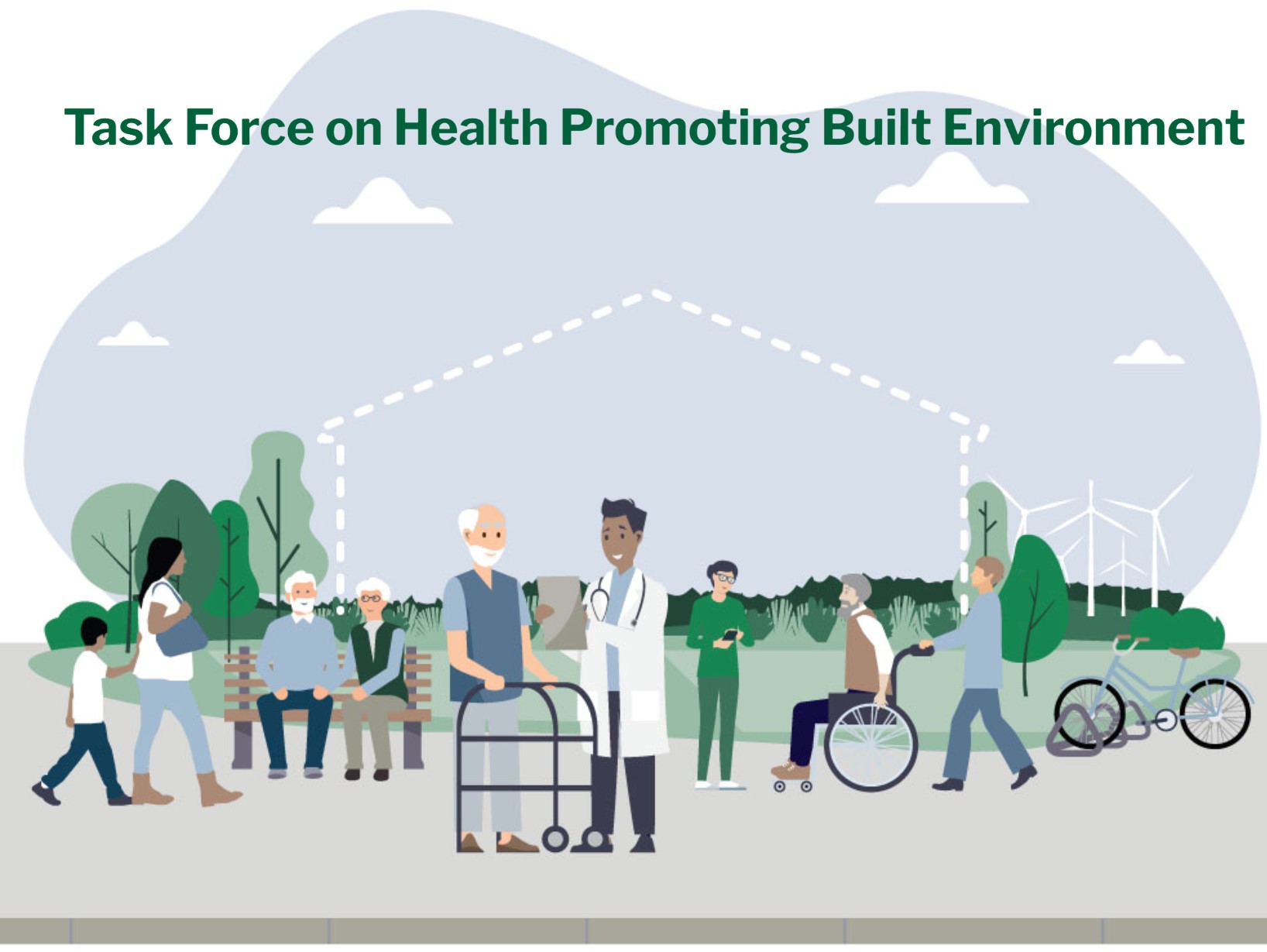
Aims
- Collect, select, and share knowledge for health promoting built environments (HPBE) through a public knowledge sharing platform and informational events.
- Contribute to new partnerships across the design disciplines, expanding HPH’s presence and familiarizing designers with the strategies and standards of HPH.
- Assess and enhance HPH Standards to include built environment considerations.Involve more designers in the leadership of HPH and incorporate design education into the construction of HPH.
- Inform healthcare organizations of the key connection between the built environment and health and support them in decisions to develop HPBEs.
Activities
Research
- Enablers and Barriers: This ongoing research study aims to explore supportive and limiting factors in implementing HPH built environment standards.
Learn more about our project and how to participate HERE!
E-Learning Library
- This video library will provide information for health care leaders, architects and designers, and policy makers who wish to learn more about health promoting building design.
Webinars
Children’s Rights to Play and Participate in Artistic Activities in Healthcare Settings by HPH and RED NOSES!
5. March 2024
Publications & Podcasts
- Miedema, E., Lindahl, G., Elf, M. (2021). The Swedish Health Promoting Healthcare network and the built environment, Health Promotion International, Volume 37, Issue 1, February 2022, daab101, https://doi.org/10.1093/heapro/daab101
- Miedema, E. (2020). Health-promoting building design. In doctoral thesis. Chalmers University of Technology
- Miedema, E., Lindahl, G., & Elf, ML. (2019). Conceptualizing Health Promotion in Relation to Outpatient Healthcare Building Design: A Scoping Review. Health Environments Research and Design Journal, 12 (1)
- Miedema, E., Lindahl, G., & Elf, M. (2019). Health promotion and the built environment – views from Swedish healthcare organizations. ARCH19: BUILDING FOR BETTER HEALTH Research & Innovation in Architecture & Urban Design for Care & Health, June, 11
- Miedema, E., Lindahl, G., & Elf, LM (2017). Health-promoting ambitions related to building design – the case of Angered Nearby Hospital. In N. Mathiasen & AK Frandsen (Eds.), ARCH17 – 3rd international conference on Architecture, research, care and health. (3rd ed., Vol. 1, pp. 331-344). Polyteknisk förlag
- HealthScapes E1 – Scoping review on health promoting building design for outpatient healthcare
- HealthScapes – Health Promotion & The Design of Healthcare Facilities
Additional Relevant Publications
- Bianchin, M., & Heylighen, A. (2017). Fair by design. Addressing the paradox of inclusive design approaches. The Design Journal, 20(sup1), S3162–S3170
- Heylighen, A., Van der Linden, V., & Van Steenwinkel, I. (2017). Ten questions concerning inclusive design of the built environment. Building and Environment, 114(11), 507–51
- Golembiewski, J. A. (2010). Start making sense: Applying a salutogenic model to architectural design for psychiatric care. Facilities, 28(3–4), 100–117
- Golembiewski, J. A. (2017). Salutogenic architecture in healthcare settings. In Mittelmark M. (Ed.), The Handbook of Salutogenesis (pp. 267–276). Springer International Publishing
- Persson, H., Åhman, H., Yngling, A. A., & Gulliksen, J. (2015). Universal design, inclusive design, accessible design, design for all: different concepts—one goal? On the concept of accessibility—historical, methodological and philosophical aspects. Universal Access in the Information Society, 14(4), 505–526
International Healthcare Design Knowledge Centers
Interested in Joining?
We are looking for health practitioners, designers, and academics from all countries to join us! Task Force members do not have to be members of the International HPH Network. All we ask is that you have an affinity for the built environment, and experience in healthcare provision, leadership, and / or architectural design. Please email our task force leaders below to express your interest and learn more!
Task Force Leader
Elke Miedema, PhD
E-mail: elke.miedema@inholland.nl
Secretary: Peyton Fort, MHA, EDAC
Email: plf28@cornell.edu